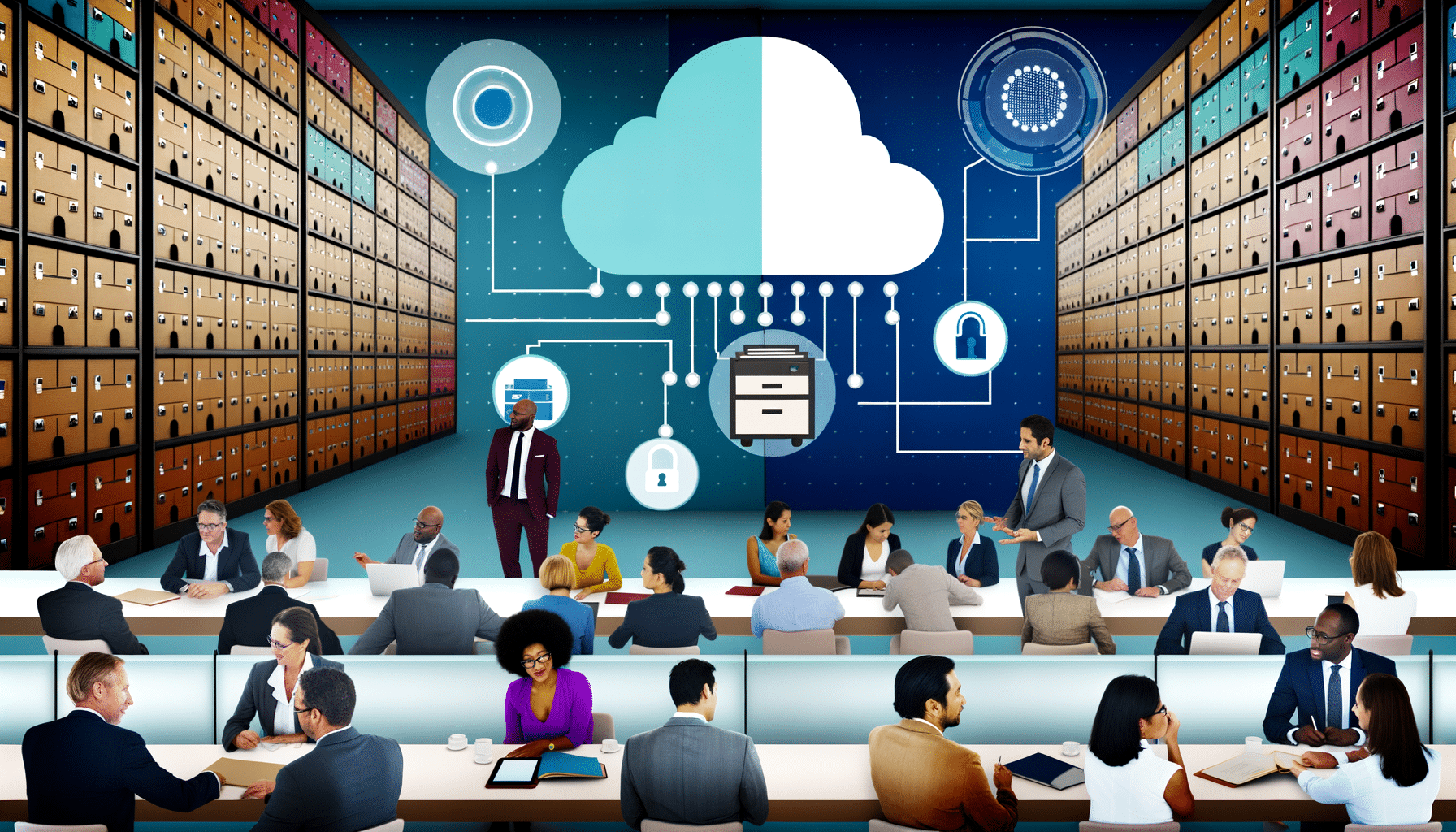Unlocking the Potential of Cloud Solutions in Government Record Keeping
The digital age is upon us, and with it comes a wave of transformation across sectors, including the public sphere. Governments are under increasing pressure to modernize their record-keeping systems, not just to improve efficiency but also to enhance service delivery to citizens. As I’ve navigated the development of RecordsKeeper.AI, it’s become evident that cloud solutions offer a groundbreaking opportunity in managing government records effectively.
Navigating the Shift: Why Cloud for Government Records?
Cloud solutions have emerged as a game-changer for organizations that need to manage copious amounts of data with precision and security. In government, where records span everything from public health data to property deeds, the shift towards cloud solutions is not just about keeping pace with technology—it’s about redefining accessibility, transparency, and accountability.
Why does the cloud hold such appeal?
- Scalability: Government data is vast and ever-growing. Cloud solutions offer scalable storage, ensuring that capacity never hinders data management capabilities.
- Cost-Efficiency: With cloud solutions, there are fewer hardware investments and maintenance concerns. The pay-as-you-go model can drastically cut costs, an appealing factor for budget-tight public sectors.
- Accessibility: Breaking down silos, cloud solutions enable government departments to access and share records seamlessly, thus fostering interdepartmental collaboration.
Ensuring Security and Compliance
The transition to cloud solutions naturally raises questions about security and compliance. Upgrading government records to cloud storage necessitates a robust framework that ensures data is protected and safeguards citizen privacy. From my experience at RecordsKeeper.AI, addressing these concerns begins with implementing strict access controls and real-time activity monitoring.
Poweful cloud tools offer:
- Advanced Encryption: Protect sensitive data both at rest and in transit with military-grade encryption techniques.
- Comprehensive Audit Trails: Generate immutable logs that ensure transparency and accountability, critical for governance.
- Compliance Templates: Customizable frameworks for compliance with regulations like GDPR, HIPAA, and industry-specific mandates.
Overcoming Adoption Challenges
Despite its numerous benefits, the adoption of cloud solutions in government record keeping is not without challenges. Resistance to change, legacy systems, and concerns over data sovereignty are some hurdles governments face. Engaging with stakeholders and educating them on the enhanced capabilities of cloud solutions can be pivotal in overcoming these barriers.
Here’s how we can strategically navigate these challenges:
1. Change Management: It starts with fostering a culture of change. Demonstrating clear benefits through pilot programs can build confidence and buy-in from both bureaucrats and technocrats.
2. Customization for Legacy Integration: Not all systems need a complete overhaul. Cloud solutions can be tailored to integrate with existing legacy systems, minimizing disruption.
3. Data Sovereignty Agreements: Partnerships with cloud service providers that understand and respect governmental data ownership concerns can quell fears over jurisdictional control of data.
The Strategic Advantage of Cloud Adoption
Adopting cloud solutions for managing government records is not merely about modernization; it’s about positioning governments to leverage data strategically. Real-time data analytics embedded within cloud solutions can offer insights into citizen needs, optimize resource allocation, and forecast future demands more efficiently.
At RecordsKeeper.AI, we have seen firsthand the transformative impacts that effective record management has on organizational efficiency and compliance. By offering automated categorization, secure data rooms, and blockchain-integrated features, our solutions align perfectly with the needs of the modern public sector, turning record keeping from a mundane task into a strategic opportunity.
Conclusion: A Call to Action
The advent of cloud solutions holds immense promise for government record keeping, offering a smart, scalable, and secure pathway for managing data. Embracing these solutions can lead to improved citizen services and enhanced public trust. The journey is fraught with challenges, but with the right strategic approach, governments can unlock unparalleled efficiencies.
I invite you to explore how RecordsKeeper.AI can support this transition, ensuring that governments can utilize their data not just as a resource but as a bridge toward better governance and societal impact. Join me in this technological evolution and follow along for more insights into the future of record management. Together, we can transform how the world manages records.








